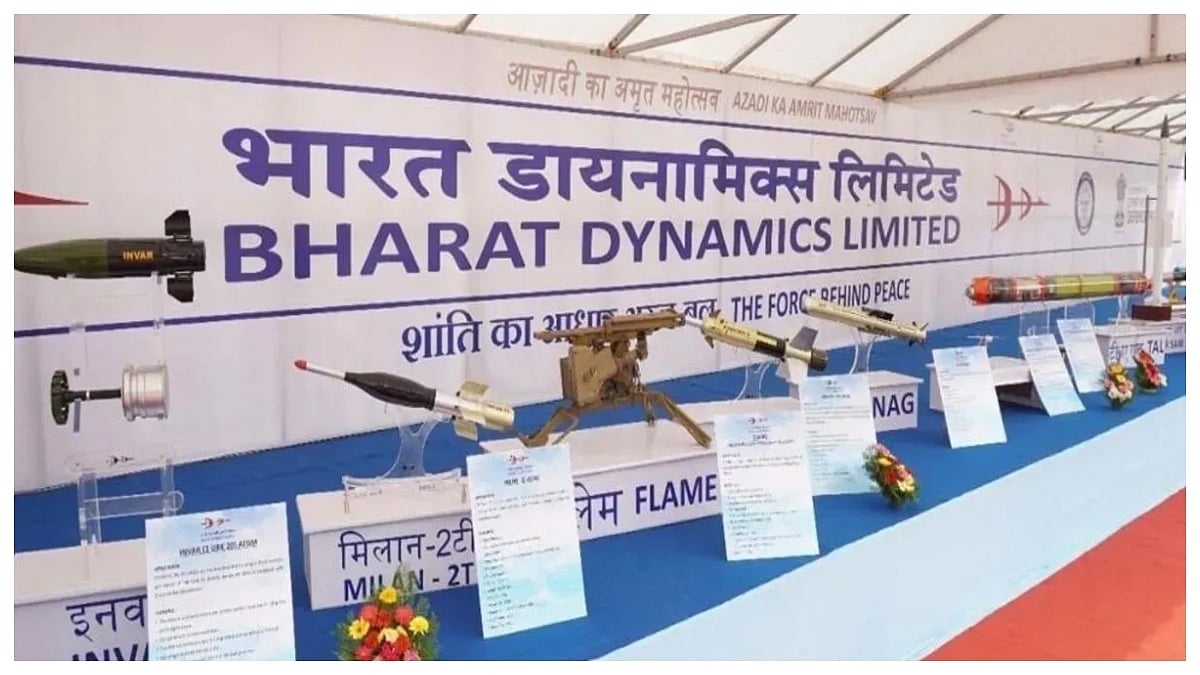There is no better time to discuss food and nutritional security than now. This is when the Ukraine war, Sri Lanka crisis, rising crude prices have led to food shortages as well as inflation. That in turn led to the export ban on wheat by India (now modified). This season the Indian farmers sold wheat to many countries at prices higher than the MSP (minimum support price) offered by the government. Collectively, they affect people across the globe.
This leads us to wonder, why can’t India with all the available technology, arable land, abundant water and hardworking farmers not find a place for its fruits and vegetables in the international markets.
For any country, as it climbs the economic curve, the dependence on cereals reduces and the dependence on nutrition increases and one of the biggest sources of nutrition in India which is majorly a vegetarian country, remains vegetables.
Keeping this in mind, the Free Press Journal in association with East-West Seed organised a webinar — The Future of Vegetables -- where industry leaders discussed the issues, the solutions and the steps that the government can take to make India the vegetable bowl of the world.
The panellists for this webinar were G C Shivakumar, General Manager, East-West Seed, India, Bangladesh and Nepal, Simon Wiebusch, Country Divisional Head, Bayer CropScience Division, India, Bangladesh and Sri Lanka and Narendra Dhandre, DGM, Netafim Irrigation India, Pvt Ltd. The session was moderated by RN Bhaskar, Consulting Editor and the editorial curator was Dominic Rebello, both from FPJ. Here’s what the industry experts had to say…

The Vegetable Sector
G C Shivakumar
East-West Seed is one of the world’s leading vegetable seed companies in Asia and is expanding rapidly in Africa and Latin America. Its mission is to provide innovative products and services that help to improve the livelihood of vegetable farmers. In addition, East-West Seed trains vegetable farmers in order to help maximize their yield and income through better knowledge of vegetable production and farming skills. We have 32 crops and offer more than 170 plus varieties for Indian farmers and continue to invest in expanding in India with Research and Development Centres, adding warehouses and adding potential people to serve the farmers and every year we are adding new products.
The company recently launched a variety of bitter gourd that is less bitter. It also launched red and yellow seedless watermelons apart from a novelty product, butternut squash which recently got exported to Dubai and other countries. East-West Seed has also launched 14 crops designed to help enthusiastic gardeners kick start the cultivation of vegetables either in their backyard or terrace. As part of knowledge transfer, the company offers farmers practical skills and introduces them to new technologies that will help them to improve their profitability. In India, East-West Seed has helped more than 60,000 smallholder farmers who are benefited from adopting this technology.
Today agriculture produces enough food for everyone. But the number of people experiencing moderate to severe food security stands at 2 billion of the global population. According to a report, ‘The State of Food Security and Nutrition in the World’, despite India being self-sufficient in food production, it was home to close to 193 million undernourished people from 2016 to 2019.
Therefore, raising awareness of direct policy attention to the nutrition and health benefits of fruits and vegetable consumption is actually the need of the hour. In this context, I would like to say that we should change the narrative from food security to nutritional security. Going forward our Agri policies should be more nutrition-sensitive to promote diet and diversification towards healthy and nutritious food.
Simon Wiebusch
India is obviously the biggest vegetarian market and that gives a sense of how important vegetables are to feed the nation.
Post-Covid, people are realizing the importance of nutrition and its health benefits. People have to think and realize that it is the underlying catalyst and reconsider how they should be literally feeding themselves. And to my mind, this is where we are going to be seeing the rising of the country in terms of becoming the global source of fruits and vegetables.
Currently, we are lacking full nutrition for our 1.3 billion citizens. The more India uses this opportunity to feed its population with good fruits and vegetables, the more we will become a global powerhouse also for potentially feeding the rest of the world with good fruits and vegetables because we're going to be learning along the way.
Narendra Dhandre
Netafim Irrigation is an Israeli company working for farmers for the last 50 years. In India, we have been working since 1990. Every year we install micro-irrigation on more than one lakh hectares and out of that, almost 30,000 hectares are on vegetable crops because this is a crop where the farmer can get results within 3 -4 months.
Prime minister Narendra Modi has the vision to double the income of farmers and without vegetables, it is not at all possible. Recently, agriculture minister Narendra Singh Tomar visited Israel. There he visited Netafim and he is exploring the possibilities of how Indian farmers can get the benefit from this advanced technology.
Growing vegetables is a skilled job. Farmers need to have the technical know-how on what is required to increase the production of vegetables, especially during off-season periods.
India has different agro climate zones and can surely be a hub to export vegetables.

What is it that prevents India from becoming an export powerhouse?
G C Shivakumar
East-West Seed is one of the world’s leading vegetable seed companies in Asia. The company has played an important role in developing and improving tropical vegetable varieties that are adapted to tropical markets and growing conditions.
Farmers need hybrid and high-yielding varieties. We need hybrids and we need a product that can suit the family. So it should be the family-sized and one that will have the nutritional value and can be used in one go.
India has a huge geography and so many eco-climatic zones. With the improved technology we can have hybrids which are suitable for all seasons. We see tomato cultivation across India nowadays. This is possible by using technology with a good amount of chemicals, new molecules supported by well-balanced fertigation. That has helped extend the crop life of tomatoes to more than one seaspn. . Now looking at the requirements or rejuvenating the plant can yield up to nine months. So all these opportunities definitely help to produce more and help the farmers to get a better remuneration.
Simon Wiebusch
It all starts with ambition. the government goes out and says double the income of the farmer. That's an ambition and we can all work towards that. We breed for the requirement of the farmers but what is actually more important is to breed for the requirement of the markets.
I think that is what all the professional hybrid seed companies along with Bayer are really looking at --how can we marry the two. This is where professional food value chains come into play.
Certain states like Telangana said we want to move away from one crop please. Allow us to grow an additional one as well. That is when you need to have the ambition and then you need to go all the way -- you need to go for water management you need to go for certification because exports markets will ask you questions. It starts with maximum residue levels. But there is a lot more information required. How was it grown? Who was it grown by? Was there potentially child labour involved? There are. a lot of things where if we really want to professionalize the food value chain in India, it starts with ambition and then everything else comes.
Narendra Dhandre
I came across a lot of farmers who can produce quality vegetables. But because of the lack of connections where to export and how to export, it is quite difficult for them.
Someone has to give them knowledge on residues, diseases, chemicals, water management etc. They can then produce good quality vegetables that can be easily exported to many countries. This is the knowledge someone has to give and then they can produce vegetables that can be exported. So I think the connection between the farmer and exporter is missing.
Why has the yield not been as good in India?
G C Shivakumar
There are some hybrids that we are selectively looking at keeping in mind the need of the farmers, but what's happening is that every day things are changing.
Earlier the farmer's main focus was on how can I increase the earlier benchmark and get a better yield? Earlier, the traditional yield of tomatoes was 30 to 40 metric tonnes, but now with improved technologies, we are getting 80 metric tonnes. With the rising problem of viruses and pests, maintaining crops has become a big problem.
While you breed for high yield there will always challenge in how they can keep the pests and diseases at bay. While we focus on breeding the high-yielding varieties, we also need to think about integrated crop management and integrated pest management which will definitely help to balance that out. While the farmers get the required output, they should also get the right price which is accepted by everyone.
Simon Wiebusch
It's very, important to differentiate between use per se and saleable use. This is where the aspects of quality and traits come into play.
The next focus point must be to build that integrated chain. Be it the topic of integrated pest management, water management, etc.
There is a huge Indian diaspora around the world that will happily buy Alphonso mangoes but even the ones you get in Mumbai are already squashed because they have not been handled properly along the way.
Vegetables too need to be handled correctly and that is why the whole topic of the food value chain becomes so important
It's no use to have great yields of a beautiful vegetable, which by the time reaches the airport has been squashed. That is where we all need to work together.
Narendra Dhandre
Basically, the quantity and quality of produce depends on five things. One is irrigation management, fertigation management, disease and pest management, the quality of seed and technical know-how of the farmer.
Vegetable production needs a lot of technical know-how like when to irrigate when to fertigate, how to irrigate, how much to fertigate, and preventing disease and pest management. The moment it rains heavily, what should be the irrigation snd fertigation schedules. So, these are the basic things that the farmers should know.
What should the government do to enhance the popularity and the prosperity of the sector?
G C Shivakumar
There are close to more than 800 Krishi Vigyan Kendras across India. They work closely on public-private partnerships. Can they educate the farmers and get closely involved in understanding the recent changes in the field? If you go to most government institutions, they still recommend the old molecules. They do not even suggest the upcoming molecules which have better control and lesser residual effects. I think the fast and proactive role has to happen from the government's side. They should be open enough to work closely with some of the private organizations for the benefit of farmers.
Simon Wiebusch
For me, it's always a question of cause and effect and I personally believe that governments tend to follow trends.
The problem is that growing vegetables is riskier. I would like the government to support farmers who grow vegetables as much as they support farmers who grow cereal crops, specifically rice. The intervention need not necessarily be via MSPs. Suppose there is a catastrophe like bad weather conditions, there should be relief schemes.
These schemes could help farmers to offset the risks which are intrinsic to vegetable growing. Companies like East-West Seed, Bayer, and Netafim are putting a lot of effort into de-risking the farmer as much as they can, but they cannot take the ultimate risk away from the farmer.
The government should have structured crop insurance that also supports vegetable farmers in the event of a calamity.
Most of the commodities are currently trading above MSPs which means the government and the farmers have made windfall profits. They can come up with a risk offset scheme for vegetable farmers. From my perspective that would be huge government support, which could tilt a lot of farmers towards producing vegetables.
Better Insurance Policies For Vegetable Growers
G C Shivakumar
Since we are a vegetable seed company we are in consultation with many private insurance companies. We can work closely with insurance companies to ensure that the vegetable farmers have proper insurance coverage.
Currently, the government has a policy in place which supports field crops or row crops. But more policies are needed for vegetable farmers. We have been trying for the last five years without any success. I think there's a good point probably and we will debate at the right forum to bring it to the notice of the government because natural calamities are going to happen. In such situations, the field crops are protected but the vegetable farmers have not been protected from these natural calamities.
Simon Wiebusch
Weather catastrophe insurance is something that the private sector cannot offer. But if a farmer knows that a hailstorm may hit my mango trees then he can surely take precautions. Today all the data is available, also we have a very good database for monitoring weather events. The government can easily implement something like that to support the farmer.
Wastage and destruction of value
G C Shivakumar
One of the biggest debates is that when a farmer produces, the storage loss or harvest loss is in the range of 8-13%. If we can manage this then there will be a greater output. But as of now, we don't have the infrastructure or even capabilities to procure when there is a glut in production. We have spoken to quite a few vegetable farmers and their questions were: I'm ready to produce the vegetables, will you help me to market them? If I produce more, will you be able to buy it? Or, Can you connect me to the agency where we can sell it? Presently, it is in a very nascent stage. Probably this is one area where we all can collectively push.
Narendra Dhandre
Processing of fruits and vegetables can play a vital role and we need many such plans in the agricultural sector. So as far as the intervention of government is concerned all these government agencies dealing with agriculture, specialty Agriculture Universities, KVKs, Horticulture and the Agriculture Department of the state should have an ownership mindset.
This being a state subject, it has to play a vital role in developing these farmers, especially vegetable farmers. Currently, the state governments are increasingly focusing on mass farmers producing greens, especially pulses. Many states have adopted Centres of Excellence for technology, many of which were set up in collaboration with Israel.
States like Haryana have around four Excellence Centers in four districts. If it is in every district then knowledge dissemination will be quite high and the latest technologies will be within the range of farmers. If he wants to learn something he has to just visit his district HQ and get the knowledge. The state has to play a vital role in bringing these advanced technologies to the farmer and help farmers to produce export quality vegetables.
Warehousing solutions
Simon Wiebusch
Warehousing solutions are offered to the agricultural sector to some extent. The question again is of the cost-benefit ratio. If you look at the annual production today, there is a lot of integrated storage and these do not even necessarily have to be for cold storage. If you have good onions and you have a good post-harvest regime as well then you can overcome the problems.
It is a question of having the intelligence which is available in the country being channelled in the right way and getting farmers to accept and use the information. Here, the farmer producer organizations can help and all of this will lead to sustainability. Indian agriculture must become more sustainable. We are inefficient in water usage, land usage, labour usage and fertilizer usage. We invest too many resources into the single kilogram of highly yielding tomatoes. That is going to be an aspect where we start the better usage of resources by using technology such as artificial intelligence, machine learning, etc. They should be really employed to move Indian farming up to the next level.
Ready-made markets for the supply of vegetables a reality?
Simon Wiebusch
The war as such is a black swan event and it's not something that we should see as a permanent shift. We will face pressures and this goes not just into fertilizers. All the inputs like high-value fertilizers and agrochemicals are being impacted. Because basic chemicals are becoming more expensive the prices of their associated products rise. Vegetable farmers will be looking at higher input costs and it begins with labour in this country. Also, India has to be super inefficient with its resources. It means that even if the fertilizer prices are higher, it might be a blessing in disguise because the farmer may now look at fertigation via an irrigation system instead of just spreading it vertically.
So, farmers have to be guided through better life farming centers. The farmers will actually learn how to produce more efficiently, and it is better for the long run as it will help us to be more competitive.
G C Shivakumar
The next course of action should be that we collectively help in exporting some of the vegetables so that there will be a better opportunity for everyone.
Narendra Dhandre
Farmers are under heavy pressure as far as input costs are concerned, especially the fertilizers, seeds and even the irrigation systems. So, in order to allow better efficiency of the fertilizers, the farmer has to adopt this irrigation technique and not only adopt the irrigation system. He has to learn how to apply, how much to apply when to apply and all of this will make a lot of difference. The farmer has to learn a lot of technical know-how and only then will he be able to produce more with less input and higher efficiency.




